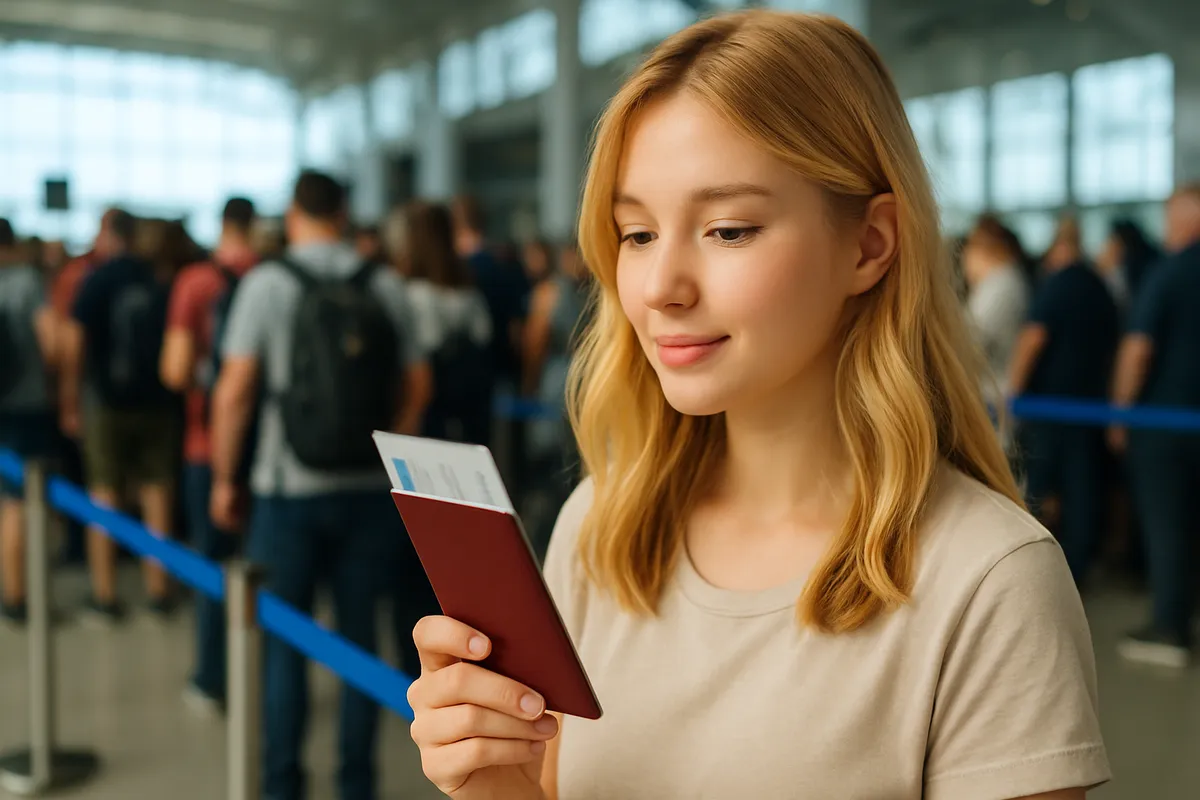Do I need to go to the airport early after checking in online?
- Thursday, May 22, 2025, 11:23 (GMT+7)
Do I need to go to the airport early after checking in online?
Many travelers breathe a sigh of relief after checking in online, thinking they’ve secured their spot on the flight and can now take it easy. But this false sense of security has led more people to miss their flights than one might expect. The reality is that while online check-in saves time at the counter, it doesn't mean you can show up late. In fact, airports are filled with real-life examples proving that online check-in is only the first step in a much longer journey.
Let’s start with airport arrival times. At major Vietnamese airports like Noi Bai, Tan Son Nhat, and Da Nang, especially during peak travel periods, most airlines require passengers to arrive at least 120 minutes before domestic flights and 180 minutes for international flights. This is not just a suggestion. That time is not only for checking in, but also for dropping off luggage, passing through security screening, navigating to the boarding gate, and waiting to board. Each of these steps can take a surprising amount of time when airports are crowded.
During holidays or the summer season, even getting through security can take up to 45 minutes. Picture this: you’re stuck in a slow-moving line with hundreds of people pulling suitcases, while the loudspeaker repeatedly calls your name. No matter how fast you rush afterward, if you’re not at the gate on time, the airline will shut the boarding door without waiting. In that moment, your online check-in becomes meaningless.
Another overlooked factor is checked luggage. Even if you’ve checked in online, you still need to drop off any large bags. There are dedicated drop-off counters, but they open and close according to the flight schedule. If you arrive late, there might not be enough time to drop your luggage. And without checked baggage processed, you won’t be allowed to board.
Some seasoned travelers try to avoid this by traveling with carry-on only. But that also comes with limits. Most budget airlines restrict carry-on baggage to 7 to 10 kilograms. Some airports now conduct random weight checks at the gate. If your bag exceeds the limit, you may be forced to return to the counter to pay extra, often at a steep cost, which could delay you enough to miss boarding.
Even without checked baggage, arriving late brings risks. Some gates are located far from the security checkpoint, especially at larger airports. A rushed walk of 10 to 15 minutes can be tough, especially if you’re carrying heavy items or traveling with kids or elderly passengers. In some cases, passengers have to take a shuttle bus to a remote stand, and the bus leaves on schedule, not waiting for latecomers.
There’s also the chance of a last-minute gate change. This happens more often than you think. If you arrive late, you might miss the announcement. Several travelers have missed flights simply because they waited at the printed gate and didn’t hear the change being broadcast. It’s a mistake that can happen to anyone.
This isn’t just a problem for first-time flyers. Even frequent travelers can get caught off guard. One person who flies monthly missed a flight just because it was the weekend, the road was busier than usual, and he assumed arriving 45 minutes early would be fine. But by the time he arrived, the bag drop counter was closed and boarding had ended exactly on schedule.
Some travelers think they’re safe as long as they arrive before the departure time. But that’s a dangerous misunderstanding. Airlines close boarding gates 25 to 40 minutes before the time printed on your ticket. So if you arrive “just in time,” you might actually already be late.
Here’s a practical tip: Set three alarms for your trip, one for when to leave home, one for when you must be at the airport, and one for boarding time. This helps break down your timeline and avoid the trap of thinking there’s still plenty of time. Also, use the airline’s mobile app to track gate changes and live updates. Don’t rely solely on a printed boarding pass, as things can change quickly on the ground.
If it’s your first time flying, aim to arrive at least 2.5 hours early for domestic flights and 3.5 hours for international ones, even if you’ve checked in online. Use the extra time to understand the airport layout, ask staff for help if confused, and don’t hesitate to clarify directions, signage isn’t always intuitive for newcomers.
If you’re flying with a group, agree in advance on a meeting time at the airport and assign someone to manage the tickets and shared luggage. Don’t let one latecomer delay the entire group. One person’s mistake could cost everyone their flight.
Online check-in is a helpful tool to speed up the initial process, but it doesn’t replace the responsibilities of air travel. You still need to be punctual, prepared, and alert to real-time changes. Having a backup plan for unexpected issues is just as important as having your digital boarding pass. Because flights don’t wait. And technology is never an excuse to be late.

 CHECKIN.VN
CHECKIN.VN








Share on